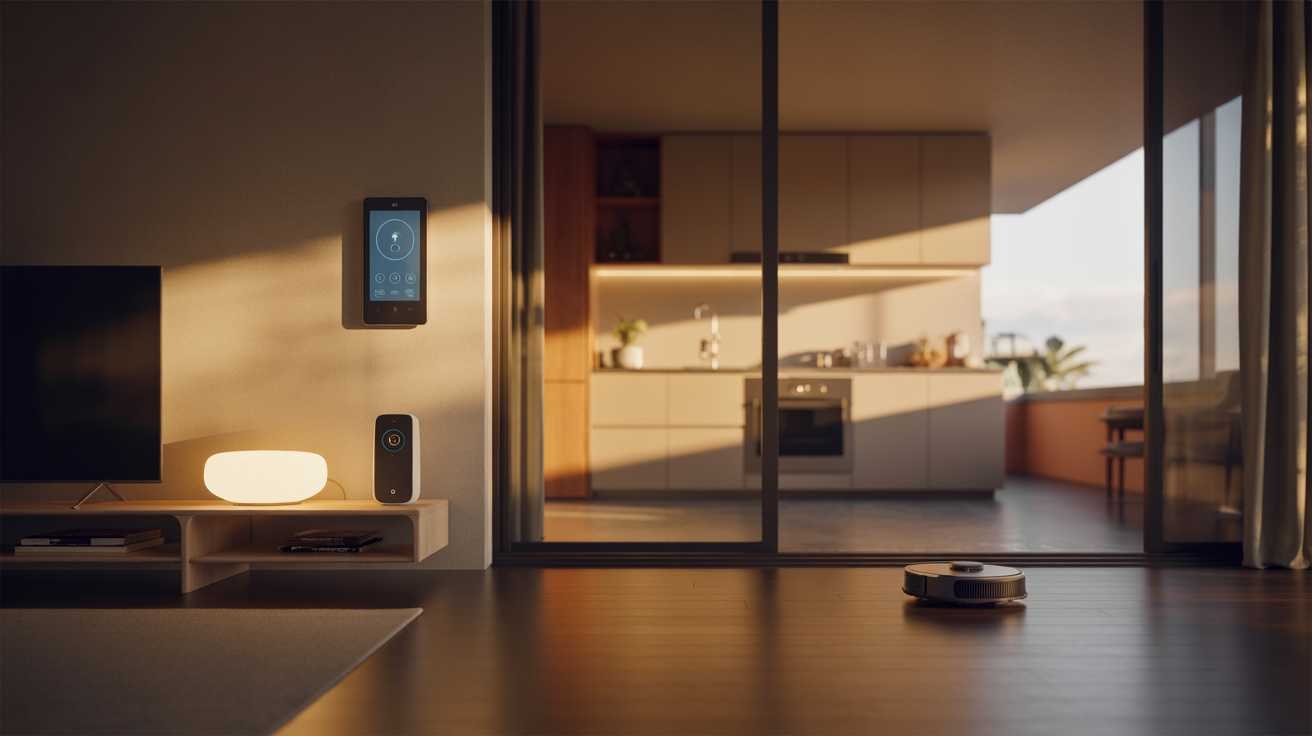In an era where technology seamlessly integrates into every facet of our lives, the latest wave of smart home innovations is not just enhancing convenience – they’re revolutionizing the very essence of daily living. From intelligent assistants that anticipate your needs to devices that adapt to your environment, the future is now, and it’s more accessible than ever. As we delve into these groundbreaking products, it’s clear: the smart home revolution is here, and those who hesitate may find themselves left behind.
The Rise of AI-Driven Smart Assistants
Imagine walking into your home, and without a word, the lights adjust to your preferred brightness, the thermostat sets itself to your ideal temperature, and your favorite playlist begins to play softly in the background. This isn’t a scene from a sci-fi movie – it’s the reality brought to life by AI-driven smart assistants. These devices learn from your habits, adapt to your routines, and offer a level of personalization that was once unimaginable. With voice recognition capabilities and intuitive interfaces, they not only respond to commands but anticipate your needs, creating a living space that feels truly intelligent.
One standout example is the integration of Google’s Gemini AI into smart home ecosystems. Early access users have reported experiences where their devices communicate with each other seamlessly, adjusting settings based on time of day, occupancy, and even weather conditions. This level of integration transforms a house into a responsive, living entity, enhancing comfort and efficiency in ways previously thought impossible.
Smart Appliances That Think Ahead
The kitchen, often considered the heart of the home, is undergoing a transformation with the advent of smart appliances. Refrigerators that monitor expiration dates and suggest recipes based on available ingredients, ovens that can be preheated remotely, and dishwashers that optimize water usage are just the beginning. These appliances not only save time but also contribute to energy efficiency and sustainability.
Take, for instance, the latest line of smart refrigerators from Samsung. Equipped with internal cameras and AI algorithms, these refrigerators can track the freshness of your groceries, suggest meal plans, and even order replacements when supplies run low. This proactive approach to kitchen management ensures that you’re always prepared, reducing food waste and streamlining meal preparation.
Enhanced Home Security Systems
Safety and security are paramount concerns for homeowners, and the latest advancements in smart security systems are addressing these needs with unprecedented precision. Modern security cameras offer high-definition video feeds, motion detection, and facial recognition technology, allowing homeowners to monitor their property in real-time from anywhere in the world.
Companies like Ring and Nest have introduced cameras that not only alert you to potential intruders but also provide two-way communication, enabling you to interact with visitors or delivery personnel remotely. Integration with other smart devices means that security systems can trigger actions such as locking doors, turning on lights, or sending alerts to your phone, all at the moment a security breach is detected.
Energy-Efficient Smart Thermostats
Climate control in the home has always been a significant contributor to energy consumption. However, the latest smart thermostats are changing the game by learning your schedule and preferences to optimize heating and cooling, thereby reducing energy usage without sacrificing comfort. These devices can adjust temperatures based on occupancy, time of day, and even weather forecasts, ensuring that energy is used efficiently.
The Nest Learning Thermostat, for example, has been praised for its ability to adapt to users’ habits over time, creating a comfortable environment while minimizing energy costs. Its sleek design and user-friendly interface make it a popular choice among homeowners looking to enhance both comfort and efficiency in their living spaces.
Voice-Controlled Lighting Systems
Lighting sets the mood and ambiance of a room, and with the advent of smart lighting systems, homeowners have unprecedented control over their environment. These systems allow you to adjust brightness, color, and even create lighting schedules, all through voice commands or smartphone apps. Whether you’re hosting a dinner party, watching a movie, or winding down for the night, smart lighting can enhance the experience.
Philips Hue has been a leader in this space, offering a wide range of bulbs and fixtures that integrate seamlessly with other smart home devices. Their latest offerings include bulbs that can change colors in response to music or movies, creating an immersive experience that adapts to your activities.
Smart Home Hubs: The Central Command Centers
As the number of smart devices in the home increases, managing them can become a challenge. Smart home hubs serve as central command centers, allowing users to control and monitor all their devices from a single interface. These hubs integrate with various ecosystems, such as Amazon Alexa, Google Assistant, and Apple HomeKit, providing a unified platform for managing your smart home.
Amazon’s Echo Show and Google’s Nest Hub are prime examples of such devices, offering touchscreens and voice control to manage everything from lighting and temperature to entertainment and security. Their ability to integrate with a wide range of third-party devices makes them versatile additions to any smart home setup.
Health and Wellness Monitoring Devices
Smart technology is not limited to convenience and efficiency; it’s also making significant strides in health and wellness. Wearable devices that monitor heart rate, sleep patterns, and physical activity are becoming commonplace, providing users with valuable insights into their health. These devices can sync with other smart home systems to adjust lighting, temperature, and even suggest activities based on your health data.
Fitbit and Apple Watch are leaders in this field, offering features that go beyond fitness tracking. For example, the latest Apple Watch models include ECG functionality and fall detection, providing users with tools to monitor and maintain their health proactively.
Smart Entertainment Systems
Entertainment has always been a central aspect of home life, and smart technology is enhancing this experience in new and exciting ways. Smart TVs, sound systems, and streaming devices offer high-definition visuals, immersive audio, and access to a vast array of content. Integration with voice assistants allows for hands-free control, making it easier than ever to enjoy your favorite shows and movies.
Companies like Sony and LG have introduced smart TVs that offer features such as voice search, personalized recommendations, and integration with other smart home devices. These advancements are creating a more connected and personalized entertainment experience for users.
The Future of Smart Homes
The future of smart homes is bright, with continuous advancements in technology promising even more innovative solutions. From AI-driven assistants that learn and adapt to your needs to devices that communicate with each other to create a seamless living experience, the possibilities are endless. As these technologies become more accessible and affordable, the dream of a fully integrated smart home is becoming a reality for more homeowners every day.
However, as with any rapidly advancing technology, staying ahead of the curve is crucial. Early adopters of these smart home innovations are reaping the benefits of enhanced convenience, efficiency, and security. Those who wait may find themselves playing catch-up, missing out on the opportunities these technologies offer to improve daily life.
Don’t let the future pass you by. Embrace the smart home revolution today and transform your living space into a hub of convenience, comfort, and innovation. The time to act is now – before these advancements become the standard, and you’re left wondering what could have been.


